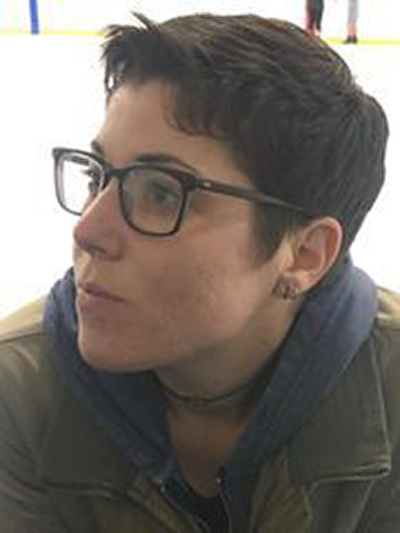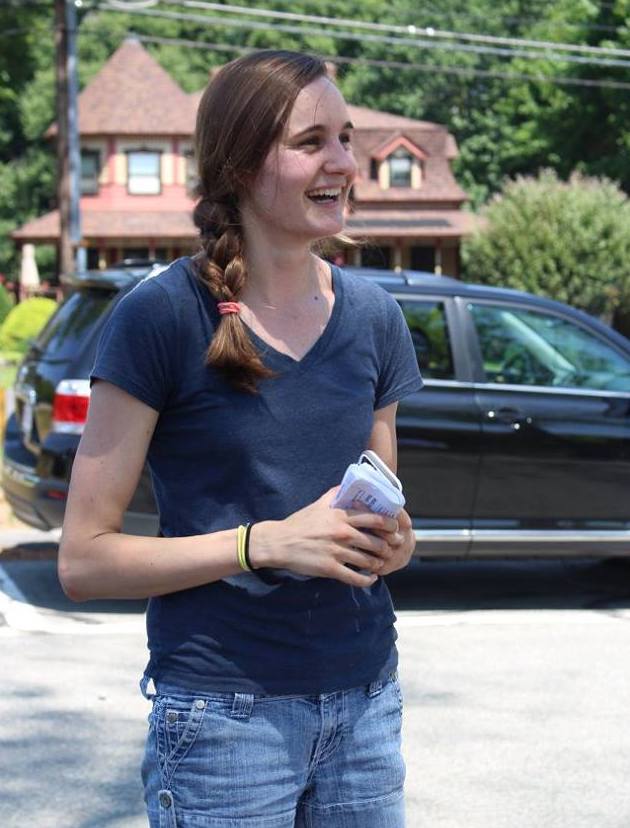Reflections on Sharing Money in Community
This post is written by Emily Duma and Joe Kruse, two members of the RG Leadership Team in Minneapolis, MN.
EMILY : Living in an intentional community, I get a lot of strange looks from relatives when I explain what I’m doing with my life. And when I tell them that I share money with my roommates, in a “common purse” set-up, they really think I’ve gone off the deep end. Which is quite ironic, actually, as practicing a common purse has been one of the most liberating, practical and life-giving things to happen to me post-college.
A little background on the community I live in: About two years ago, Joe, myself and two others decided to form an intentional community oriented around simplicity, sustainability and social change work in Minneapolis, MN. We call ourselves the Rye House (feel free to go to www.theryehouse.org if you want to see our dorky website), and in various ways attempt to use our skills, energy, cooking and home to support and enrich our community, stand in solidarity with those around us, and transform ourselves into folks who do more good, listen harder, and maybe feel a little more liberated in the process. Connecting with good people here in the Twin Cities quickly lead us to RG, and Joe and I joined a praxis group, as we wanted to examine the economic privilege we’d both been raised in and around. It was through this relationship that we were asked to write this blog post.
How does the common purse work?
Essentially, the income of all core community members all goes into one banking account, to which we all have debit cards. We’ve budgeted for many of our needs (groceries, medicine, bike repair, gas, etc.) and worked hard to come up with group purchasing ethics. We use this collective pot of money to pay for those things. In addition, we each get a weekly stipend of $30 that we can spend on whatever we want without community approval. This hopefully creates some space for us to indulge – allows us to nab that latte on the go, or grab a beer with friends after work. If I feel I need something that is outside our budgeted areas but goes beyond the stipend, I can just ask my community for it. As often as possible, we try to trust each other, acknowledge that we all have unique needs, and be generous.

Why?
The reasons why I chose to do common purse (and would love to see others try it) is because I strongly believe it is a way in which we can achieve internal and societal liberation in our relationships with money. We’ve all recently graduated from college, with high paying degrees that include Sociology, Food Justice and American Studies. And the economy has not been kind to us – according to the US Department of Labor, 52% of the kids I graduated with are jobless or underemployed, and 40% are living with their parents. Of the 48% that do have jobs, I have no idea how many are employed doing meaningful, fulfilling work that is in line with their skills. I have no idea how many feel safe and secure in their finances, or are paying down their college debt.
It’s a crisis, and I feel it’s gravity every time I talk to dear friends near and far who are confused, disillusioned and struggling. Us Rye House-rs should be in the exact same boat. Two of us came with college loans, and none of us had much savings to speak of. Currently, one of us is working full time, and four of us are working various degrees of part time. But by sharing money like a family, we are able to meet our budgeted needs every month, pay $1000 towards student loans each month (through doing this, we’ve been able to pay off one roommate’s debt and in the next few months will finish the second’s college loans) and have extra so we can build savings and feel secure and generous. We’re also in the process of discernment around buying a house together. We’ve been able to take jobs that we’re passionate about, that fit within our values and build the experience we crave, even if they’re not the highest paying opportunities out there. It then frees up those of us who are working part time to do more work within our house, which we try to dedicate to building a safe, happy home and creating social change. In particular, it allows us to open up extra space in our house to people who are in transition, or who would otherwise be homeless.
Currently, we have 3 folks staying with us to whom we provide housing and food, and in return receive the benefits of living with people who have had vastly different life experiences and create a more diverse, challenging and transformative community.
How is this an act of economic justice?
This close generosity to my fellow community members and the people who are staying with us feels like a really radical form of giving. And, as someone with economic power and privilege, I firmly believe that my role in creating collective liberation is through learning how to give up some of that power, share my wealth, and model ways for others to do the same. Class privilege is designed to be isolating, designed to make money something that is held onto tightly but never discussed. Our house challenges that. Everything is shared, accumulation isn’t prioritized and intense amounts of conversation are necessary.
It also gives me the opportunity to build cross-class relationships! Although Joe and I identify as being owning class, other members of the core community do not. Navigating this deep sharing with people who have experienced scarcity in ways that I haven’t is eye-opening. Providing hospitality to working class and raised-poor folks has also allowed me to hear the stories of what it feels like to be on the opposite end of the wealth spectrum. It’s not hard to connect the dots between the reasons why my family has wealth and the reasons why theirs do not. To echo a RG phrase that I feel so fully – that is not my fault, but it is my responsibility. Common purse gives me tangible ways to wrestle with this inequality, work on dismantling my isolating individuality, and use my privilege and give up some of my power in a way that feels heart-centered and healthy. Although it requires serious hard work, intentionality and perseverance, it feels like a big step in creating the world I want to live in.
JOE: I believe in our common purse because it focuses my critique of capitalism inward. It forces me to confront, within myself, what I feel sits at the very root of capitalism. It encourages me to challenge the greed, insecurity, and distrust that our American social, cultural, and economic systems have stitched into my way of thinking. In sharing money with my friends I feel the burning anger of jealousy often (albeit less and less the longer we do it). I feel the sting of greed when someone takes from the pot a little bit more than I do. But in order to maintain peace both within my heart and within our house, I find ways to rethink my “needs,” trust that others truly need what they say, and let go of what I’ve been trained to see as “my hard earned money.”
I spend a lot of time criticizing capitalism, right-wing Americans, and other peoples’ wealth. The common purse does a great job of slowing my thinking and reminding me that this shit haunts me too. It helps deconstruct my dualistic judgements and my need to seek out an enemy.
It is a tool for showing me how to work for liberation within myself while simultaneously demanding it of the world. A very useful quote that helps convey my message is from a Catholic monk named Thomas Merton. It goes: “Instead of hating the people you think are war-makers, hate the appetites and disorder in your own soul, which are the causes of war. If you love peace, then hate injustice, hate tyranny, hate greed – but hate these things in yourself, not in another.”
The common purse has also helped me focus on and understand my class privilege and how to better leverage it to create the social change I hope to see, albeit at a micro/household level. I come from an owning class family who paid for my college education completely. I have never been in debt. Not all of the people sharing in our common purse have had the same privilege. As we engage with this communitarian economic structure, we attempt to take on the burden of an inherently unequal and unjust social and economic structure together, as a community. Paying off college debt together represents an acknowledgement of the “deservedness” myth that so dominates our understanding of how money should work. It also reminds us of the reality that, for the privileged especially, economic revolution must come at a personal cost. We have to begin to let go.
I encourage others to try a common purse because it has taught me to be less judgmental and hypocritical, and it has given me more clarity around my privilege and how to work with it. It is a small but difficult life choice that creates a real alternative and challenges capitalism within our hearts.
If anyone is interested in trying out the common purse, or has any questions on it, let us know! We’re firm believers in its power, and would love to see and hear about others’ experiences and experiments. Shoot us an email at theryehouse@gmail.com, or stop by sometime for dinner – we’d love to hear from you.


